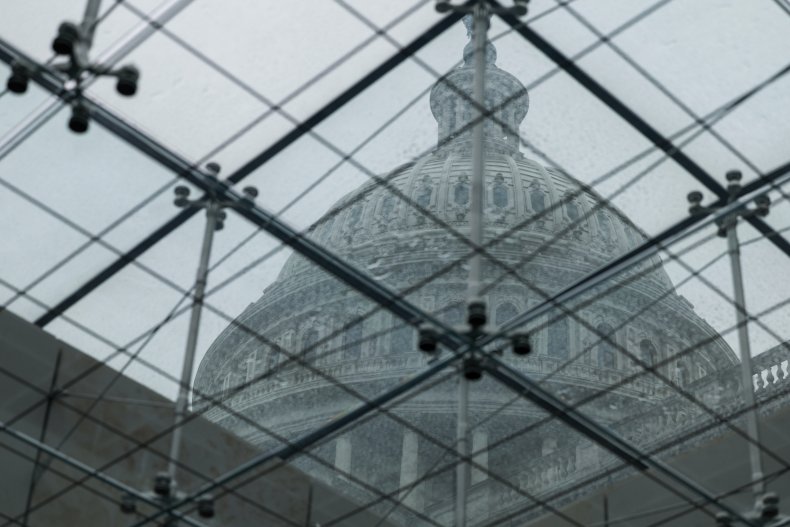LEE ZELDIN
In the corridors of power in our nation's capitol, it's an open secret that the more money foreign governments spend on lobbying and influence peddling, the more they will be able to influence policy decisions that affect their interests.
Sometimes, attempts to influence U.S. policy are conducted in plain sight in the form of direct foreign government payments to lobbyists. These lobbyists must register as foreign agents under the Foreign Agent Registration Act (FARA). More often, however, this purchase of influence is achieved by funneling money through supposedly objective, independent think tanks.
Many of these think tanks have enormous sway on Capitol Hill. Their experts testify at congressional hearings and help staff draft legislation. Think tanks wield an outsized influence with legislators, who often adopt their positions wholesale, presenting foreign governments a chance to covertly shape U.S. policy. But what happens when the "experts" filling these roles are effectively paid agents of foreign governments like China, Russia, Iran, and Qatar?
There is currently no way for members of Congress to discern which think tanks are funded by foreign governments—making think tanks effective vehicles for foreign funders to shape U.S. policy right under our noses. There exists a widespread belief that think tanks are exempt from FARA disclosure requirements. While that belief is mistaken, FARA is unlikely to be an effective tool to promote transparency around think tank funding.
To tackle this pressing issue, Sen. Chuck Grassley (R-Iowa) and Rep. Jack Bergman (R-Mich.) have introduced legislation to require a greater degree of transparency around the foreign funding of think tanks and other public policy-focused nonprofit entities, so that the public and government officials can know about any foreign influence behind research or policy recommendations. The Think Tank Transparency Act would mandate that nonprofits engaged in influencing U.S. policy or public opinion promptly disclose all funds that they receive from foreign entities, as well as all contracts and agreements they enter into with foreign entities. Those nonprofits would have to disclose their funding and contracts to the Department of Justice—which will make such disclosures available for immediate public inspection—within 90 days.
"Think tanks have an enormous influence on U.S. public policy, and many receive millions from foreign entities who have a significant interest in how our policy is shaped," said Rep. Bergman regarding the new legislation. "Congress and the American people deserve to know what these think tanks are up to, and who they're working for."
 WASHINGTON, DC - JANUARY 19: The U.S. Capitol Building dome is seen from the Capitol Visitor Center on January 19, 2023 in Washington, DC. U.S. Treasury Secretary Janet Yellen warned Republican and Democratic leaders that the federal government will reach its limit on the amount of money it is able to borrow, and that further action by lawmakers is needed by June 5th when the U.S. could go into economic default.ANNA MONEYMAKER/GETTY IMAGES
WASHINGTON, DC - JANUARY 19: The U.S. Capitol Building dome is seen from the Capitol Visitor Center on January 19, 2023 in Washington, DC. U.S. Treasury Secretary Janet Yellen warned Republican and Democratic leaders that the federal government will reach its limit on the amount of money it is able to borrow, and that further action by lawmakers is needed by June 5th when the U.S. could go into economic default.ANNA MONEYMAKER/GETTY IMAGESSeveral recent incidents—involving the state of Qatar in particular—have highlighted the need to reform the notoriously opaque think tank complex through legislation.
Retired four-star Marine General John Allen allegedly engaged in efforts to influence U.S. foreign policy towards Qatar while working at—and shortly before becoming president of—the Brookings Institution, which counts Qatar among its largest donors. Court filings indicate that Allen misrepresented his role in the lobbying campaign to officials of the U.S government, failing to disclose that he was acting in accordance with what Qatar asked of him, while "simultaneously pursuing multimillion-dollar business deals with the government of Qatar."
Another example of potential Qatari influence involves the Stimson Center, a nonprofit that deals with issues related to international security. Since 2020, the Stimson Center has actively lobbied against the Homeland and Cyber Threat Act (HR 1607), bipartisan legislation to help U.S. companies and citizens who are victims of foreign hacking activity. That bill passed in the House with broad bipartisan support, only to be killed in backroom deals.
The Stimson Center has had an unusually close working relationship with Qatar in recent years. It received at least $600,000 from Qatar in 2019, and the Qataris appear to be the sole funder of the Stimson Center's "Just Security 2020" program, which works on issues related to cyberattacks. Stimson's own literature admits that one of the primary activities of its Qatar-funded program on cybersecurity is "policy dialogues and public/policymaker engagement."
Sadly, there are many examples of think tanks engaging in lobbying, without registering, to influence legislation that would impact their foreign benefactors. We only know how much Qatar has funded this specific think tank because Stimson voluntarily released the information. We need transparency from all think tanks when it comes to foreign influence.
The Think Tank Transparency Act is an essential national security measure to protect our political system from covert foreign influence carried out under the guise of "independent" think tanks.
No comments:
Post a Comment